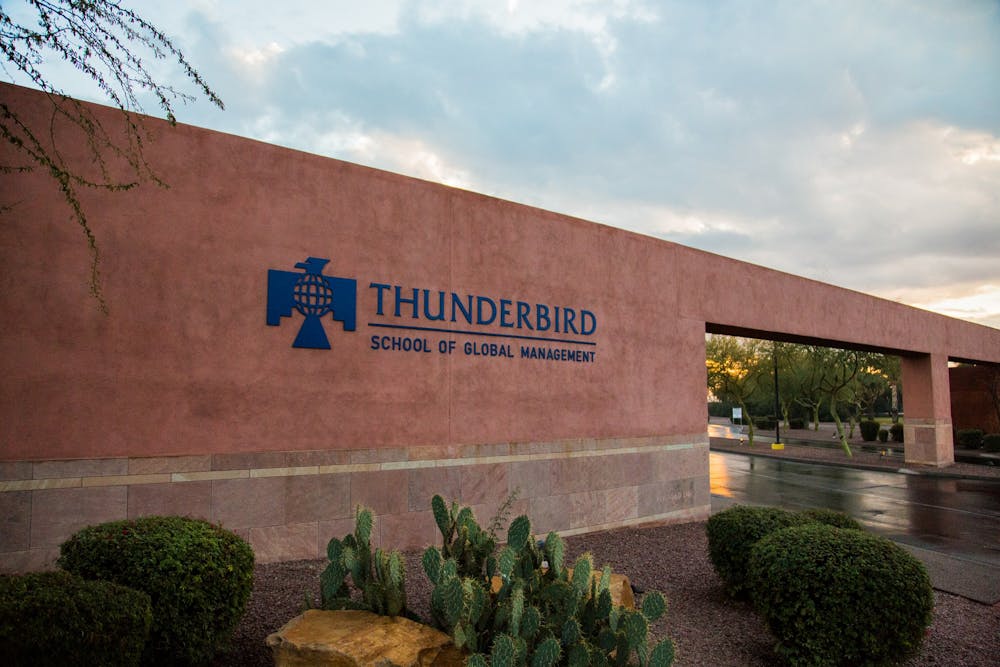Since the fall of the Afghan government to the Taliban, the Thunderbird School of Global Management has been working to locate its former fellows and pair them with opportunities to evacuate.
The school is finding former participants of Project Artemis, a fellowship Thunderbird started in 2005 before it joined ASU in 2015 aimed to help female Afghan entrepreneurs build up and create businesses and jobs in the country.
The project has had six cohorts, the last of which was in 2016. There have been 86 women involved with the project, and they have gone on to create 5,000 jobs in Afghanistan and to mentor 20,000 other women, Jonathan Ward, associate director of media relations and strategic messaging for the Thunderbird School, said in an email.
As part of the fellowship, women came to the Phoenix area for two weeks to network with and learn business skills from professionals and mentors. The fellows also toured successful small businesses.
The women learned from doctors, civil engineers, photographers and even an owner of a carpet factory. Kellie Kreiser, the executive director of Thunderbird for Good, said the women involved have a big impact on the people they hire and their communities. Project Artemis was the flagship program for Thunderbird for Good.
"When a woman has a business, she's empowered, she's got money that she can use as she sees fit," Kreiser said. "She can make choices about her life and her family, she can contribute to her community."
Mary Sully de Luque, a professor of global management in the Thunderbird School, said although the Taliban said women would be treated well, she is nervous for their safety due to their roles as entrepreneurs and status as women because of how they've been treated in the past.
"If you look at what happened before, it would not indicate that they are going to be treated well," Sully de Luque said. "I don’t know if women will be allowed to work in industry anymore or have their businesses. It remains to be seen."
Kreiser said many who are working on this effort are facing one major issue: There are more people who want to leave than will actually be able to do so, and there is no telling how much time people will have to leave Afghanistan.
The Thunderbird School is working with the U.S. Department of State and other networks to locate the women, get their information and put them on a list to "match them with an opportunity to hopefully be evacuated," Kreiser said.
The Thunderbird School has gotten into contact with many of the women who were a part of Project Artemis through Facebook Messenger, WhatsApp, emails or phone calls.
"We're really trying to be as discrete and respectful as possible during this time," Sully de Luque said. "We don't want to do anything that would compromise someone."
It is even more concerning for those whom they have not heard from.
"While we've heard from so many ... there remain many, many more that we've worked with over the years that we haven’t heard from,” Kreiser said.
Due to the fear that is currently rampant in the country, Kreiser said many may be terrified to reach out. "If they see a number that they don’t recognize, they’re not gonna pick up," she said. Many times, the women may not have access to the internet or electricity to be able to reach out either.
Not everyone who the Thunderbird School has been in contact with is trying to get out of the country. There are some who have vowed to stay and fight for women's rights.
"(They are) incredibly brave and (they are) also extremely smart," Sully de Luque said.
The Thunderbird School has been clearing social media and its website of any photos of the women to protect their identity from the Taliban.
Getting them out of Afghanistan is just the first step. After these women and thousands of others have gotten out of the country, the next phase will last as long as years for some refugees.
The next step is determining whether they are in a safe place, then "there's going to be a process of determining where they go next," Kreiser said.
The Thunderbird School remains hopeful despite the risk and fear after hearing many of these women's stories in the past and what they have gone through.
"They are so resilient to these times of tumult in the past," Sully de Luque said. "It gives me hope … that they will get through whatever comes next."
Reach the reporter at mcfisch4@asu.edu and follow @morgfisch on Twitter.
Like The State Press on Facebook and follow @statepress on Twitter.
Continue supporting student journalism and donate to The State Press today.

Morgan Fischer is the politics editor, she works with her desk to cover topics related to politics in the ASU community. She has previously worked as an intern for RightThisMinute.




